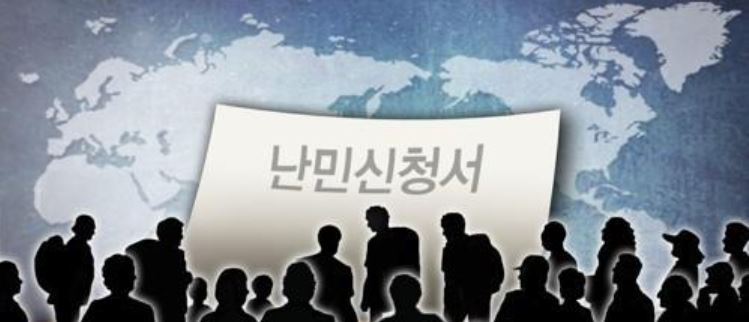South Korea’s refugee approval reached an all-time low over a 10-month period last year amid the COVID-19 pandemic, dipping below 1 percent, government data showed Thursday.
The number of asylum-seekers granted refugee status here was 44 from January to October last year, putting the proportion of refugee claims accepted during the period at 0.8 percent, according to statistics from the Justice Ministry.
This marks the lowest figure since the country began to compile relevant data in 1994.
During the 10-month period, the number of those whose refugee claims were rejected reached a record high of 5,462, exceeding the previous figure of 5,438 in 2017.
The number of those granted humanitarian protection was 140.
Humanitarian status is granted to those who do not meet the criteria for refugee status under the international law, but whose lives are at risk in their home countries due to emergency situations such as war. The permits allow them to work and live in Korea until it is safe for them to return, and can be extended on a yearly basis.
Over the 10-month period, the combined proportion of those granted refugee status or humanitarian protection has fallen to a record low of 3.3 percent of all asylum-seekers. The rate was 6.1 percent last year and 16.4 percent in 2018.
The refugee acceptance rate, or refugee recognition rate, divides the number of asylum-seekers granted refugee status by the total number of accepted and rejected cases, according to the United Nations High Commissioner for Refugees.
Korea has seen a steady rise in its number of refugee applications since 2013, when it enacted the Refugee Act to address the needs of refugees. In 2014, the number of refugee applications was 2,896, which shot up to 5,711 in 2015, 7,541 in 2016, 9,942 in 2017, 16,173 in 2018 and to 15,451 in 2019.
In 2013, nearly 11 percent of the refugee claims were accepted, but the proportion dropped to 6 percent in 2014, 3.8 percent in 2015 and 1.7 percent in 2016. It slightly increased again to 2.1 percent in 2017 and 3.6 percent in 2018, before plummeting to 1.5 percent in 2019.
The drop in the refugee acceptance rate could be because refugee screening applications are not being processed at usual levels amid the COVID-19 pandemic, according to Lee Il, a lawyer at Advocates for Public Interest Law
“The refugee screening and interviews did not happen at usual levels due to the coronavirus,” Lee said. “The refugee screening process got stricter and it took longer for those recognized as refugees to be informed of the result.”
But more fundamentally, Lee pointed out, the fall in the refugee admission rate reflects the Korean government’s lack of willingness to protect those forcibly displaced on the back of anti-refugee sentiments among Koreans.
The arrival of more than 500 Yemeni asylum-seekers on Jeju Island in 2018 brought to the fore the existence of asylum-seekers in Korea, which triggered heated debate over to what degree Korea is ready and needs to admit refugees.
“The problem is that the government views asylum-seekers as ‘fake refugees’ who are abusing the refugee system,” Lee said, adding that a recent revision to the Refugee Act comes in line with such systematic prejudice against refugees.
The revision, which the Justice Ministry put forward in December, raised the bar for those rejected refugee status to file for their asylum claims again, which the activist called “a regression” in the country’s refugee system.
In Korea, the ministry makes the initial decision on whether to accept an applicant as a refugee. Those rejected can appeal the government’s decision. If rejected again, they can take the case to court, which can take two to three years. Under the current Refugee Act, applicants whose refugee claims were denied can reapply for refugee status again.
Others point to the refugee system being abused by migrants trapped in the country due to the pandemic.
“There has been an increase in cases where migrant workers apply for refugee status to extend their stay here as international flights were suspended and they would not be able to find a job back home,” Kim Do-kyun, head of the Korea Immigration Service Foundation, was quoted as saying by Yonhap News Agency.
“If their applications are accepted, they can stay here legally and if not, they are able to work until the results come,” he said.
Refugee applicants in Korea are granted temporary visas, which allow them to stay and work in the country legally while their claims are under review. There is no financial support from the government for asylum-seekers during the process.
By Ock Hyun-ju (
laeticia.ock@heraldcorp.com)








![[Today’s K-pop] Blackpink’s Jennie, Lisa invited to Coachella as solo acts](http://res.heraldm.com/phpwas/restmb_idxmake.php?idx=644&simg=/content/image/2024/11/21/20241121050099_0.jpg)